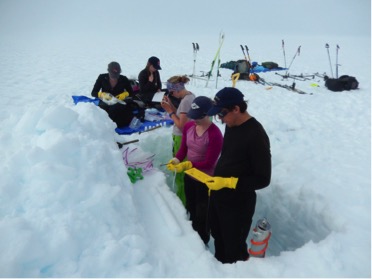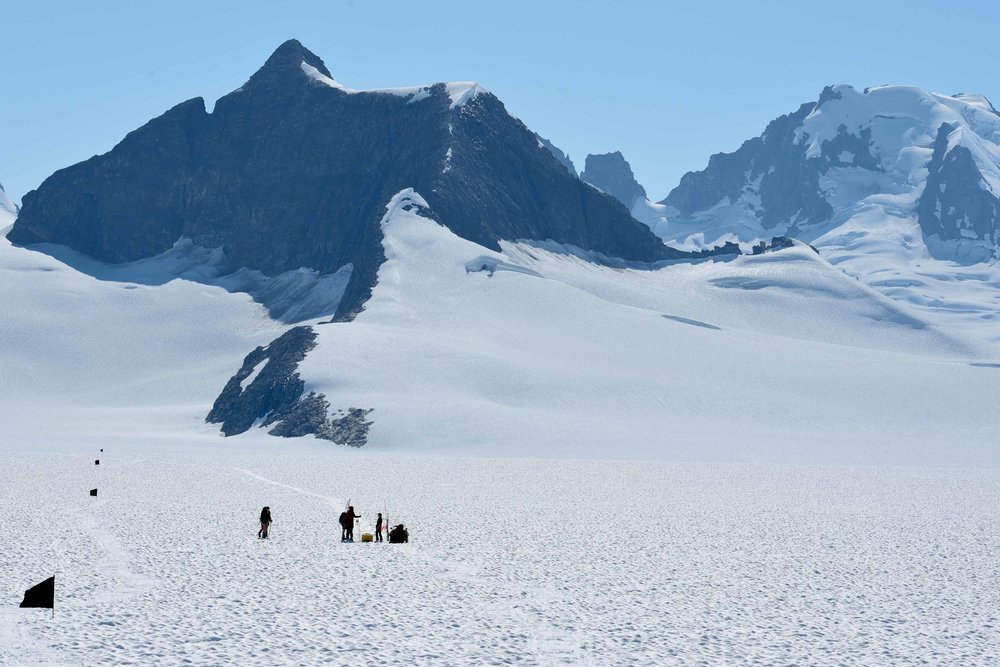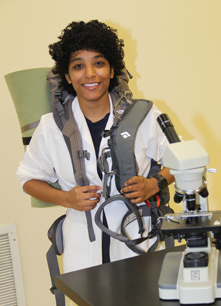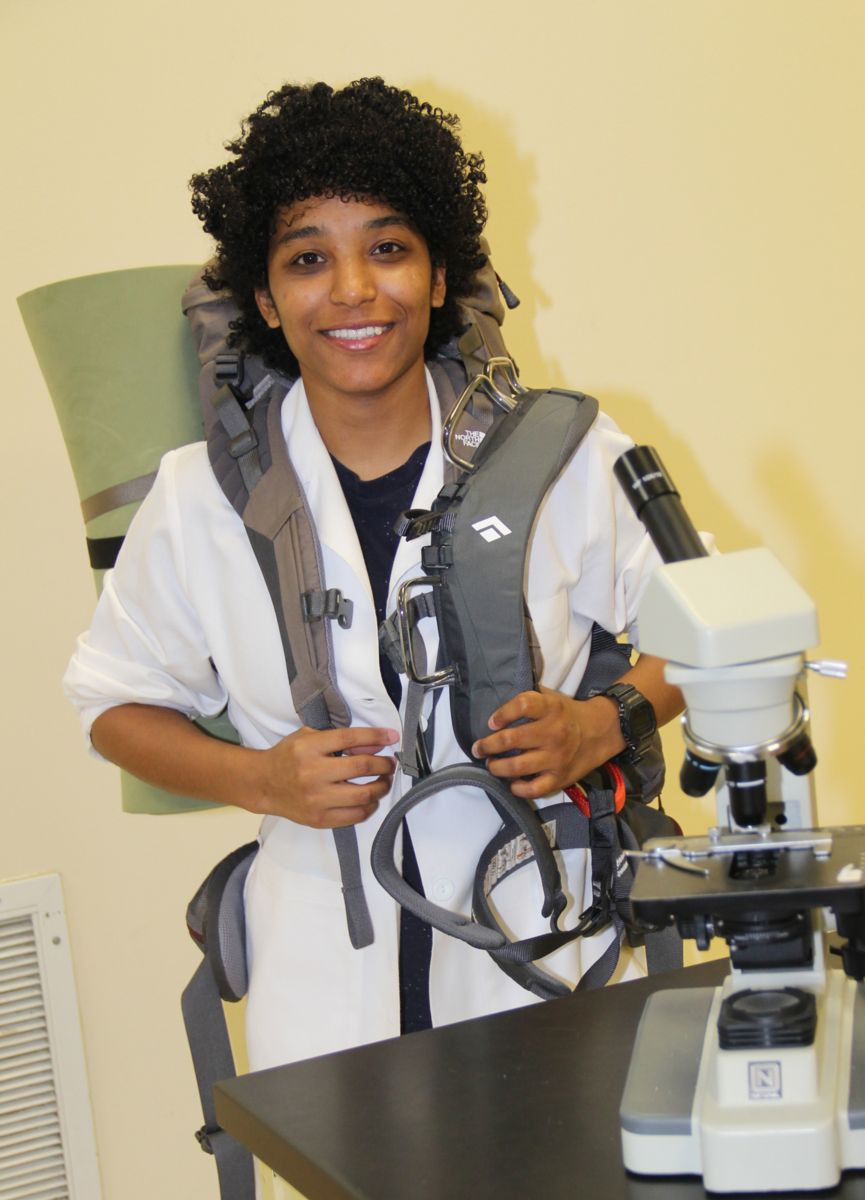Twenty-five-year-old Rachell "Chelly" Johnson of Columbus will soon be getting a huge break from the heat of Georgia while experiencing a once-in-a-lifetime learning opportunity. That's because the 2016 Columbus Technical College biology graduate and current computer networking specialist student will be heading to the Juneau Icefields for eight weeks as part of an in-depth, on-site environmental study experience. The intensive environmental study course runs June 24 – August 20 and is co-offered by the University of Alaska-Southeast and the Juneau Icefield Research Program (JIRP).
Chelly Johnson is one of only 24 students accepted into this program and the only one from the Southeastern United States. An estimated 60 students applied. Johnson says it is vital for her generation to take a more active role in protecting and preserving our environment.
"I saw an immediate concern-especially with the glaciers melting at such a rapid rate," Johnson said. "I want to do my part to help; I enjoy environmental studies and am a true scientist at heart."
Columbus Technical College student Chelly Johnson poses with her backpack and some of the equipment she'll take with her on her 8-week course in the Juneau Icefields.
Another environmental issue that is near and dear to Chelly Johnson concerns the health of our rivers and waterways. She recently worked with the Chattahoochee River Keeper as a watershed protection specialist.
Johnson’s mentor and driving force to apply and prepare for this life-changing learning adventure is the chair of Columbus Technical College's science division, Alicia Anderson.
Anderson learned of the JIRP from several professional organizations and through the organization's recruitment material. Knowing the passion Johnson has for the environment and recognizing her personal drive, Anderson figured Chelly would be the perfect candidate for this experience.
"When I got the information packet in the mail, I immediately thought of Chelly. I took a picture of it and sent it to her," Anderson said. "Chelly will be going head-to-head with students from Ivy League schools like Yale and Harvard and even students from colleges in the United Kingdom. I have complete faith that she will learn a great deal and use her new-found knowledge to educate others about protecting our precious resources."

Students from the 2016 JIRP class collecting and analyzing data. Source: JIRP
The Earth System Field Science syllabus describes the course as "an upper-division Earth system science course with an emphasis on field science, concepts in glaciology, and the integrated systems of the northern Coast Mountains. Students will conduct original research and learn safe expeditionary practices while traversing the extreme environment of the Juneau Icefield." The land area of the Icefield is huge; it includes portions of British Columbia and Alaska. Participating students will be living in the elements, collecting data and performing research. Core topics include glacier mass balance, GPS surveying, satellite remote sensing, climatology, bedrock geology, glacier travel/crevasse rescue, meteorology, and more. Besides being mentally and academically prepared, the course requires a strong level of fitness. To prepare for the miles of traversing across frozen tundra, Johnson has been running, hiking in Pine Mountain, and taking boot camp classes.

2016 JIRP students. Source: JIRP
If you would like to help Chelly defray some of the expenses of this course, please call the Columbus Technical College Foundation at 706-649-1199 or 706-649-1015. For more information on the JIRP itself, visit the Juneau Icefield Research Program's website.



